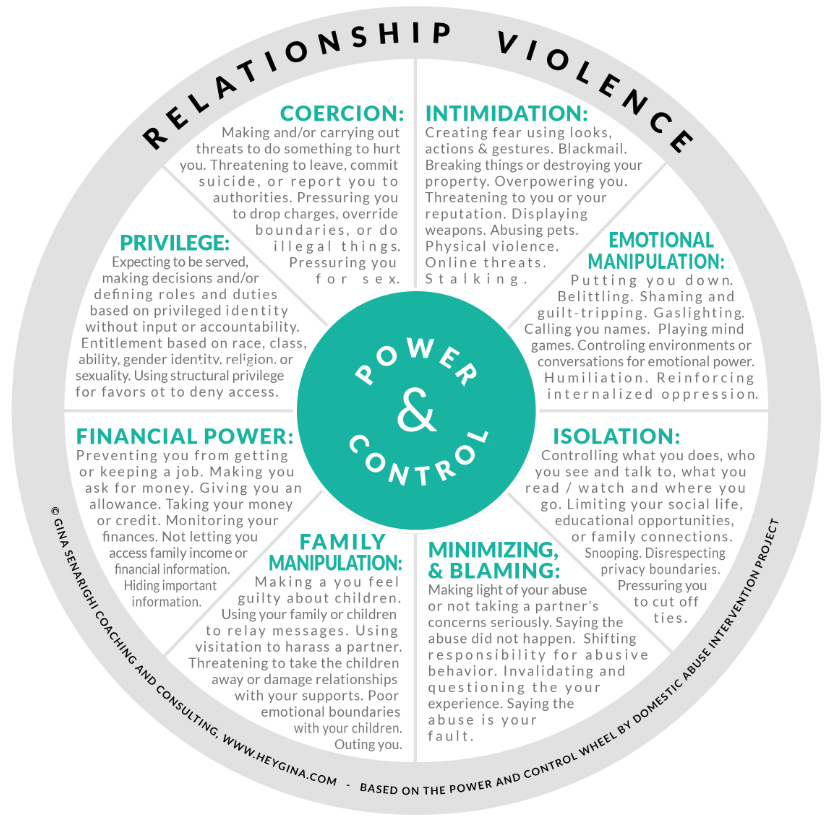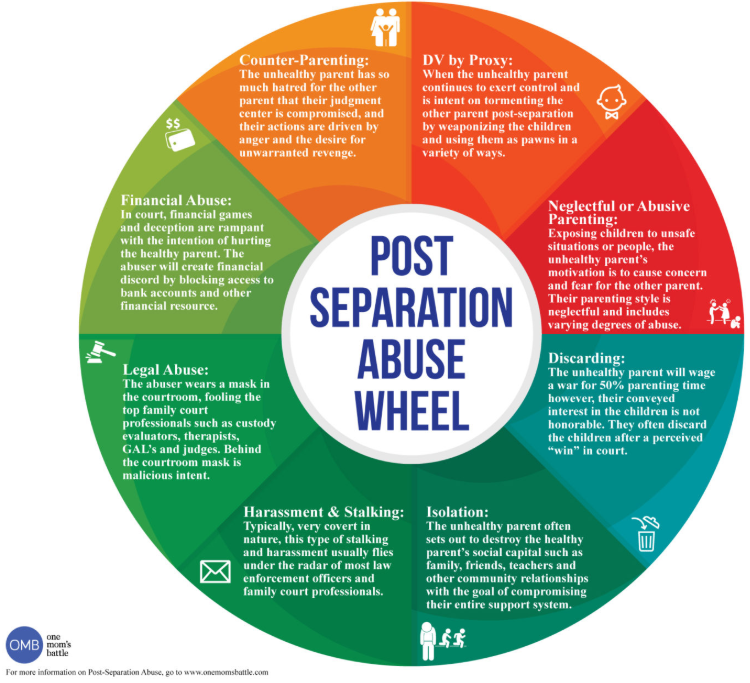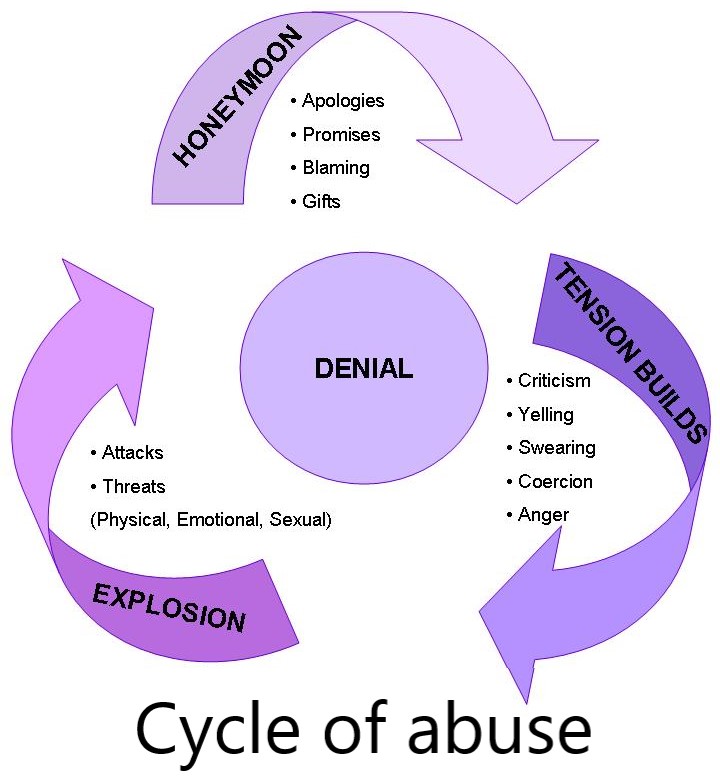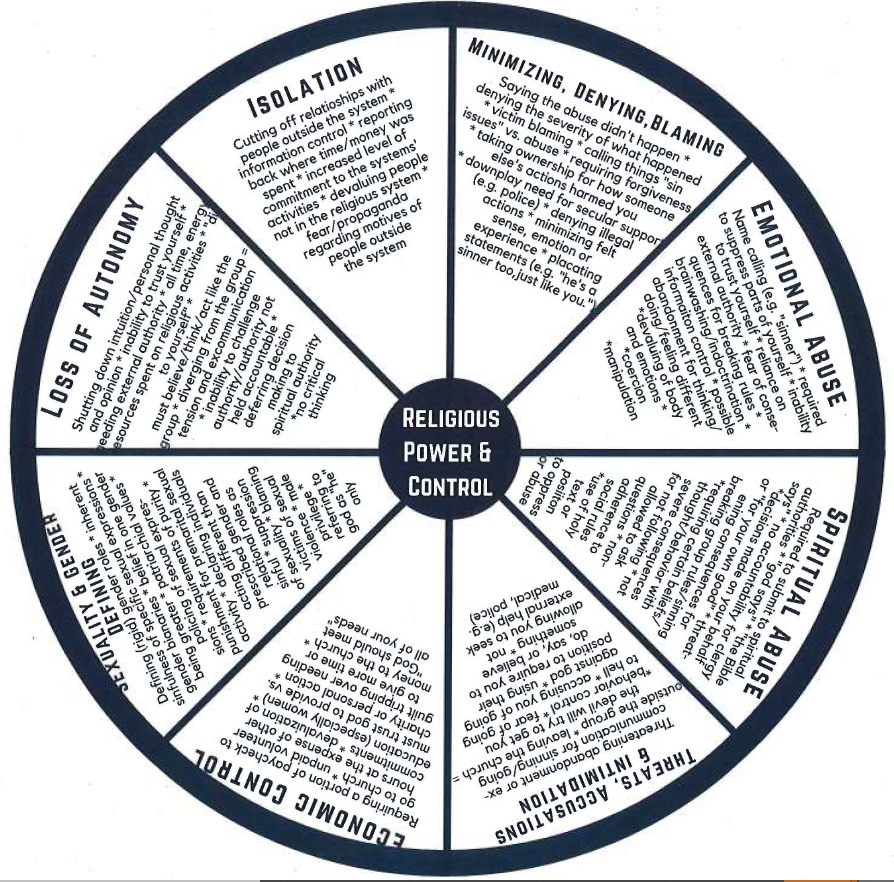Matthew 20:25-28
But Jesus called them to Himself and said, “You know that the rulers of the Gentiles lord it over them, and their great men exercise authority over them. It is not this way among you, but whoever wishes to become great among you shall be your servant, and whoever wishes to be first among you shall be your slave; just as the Son of Man did not come to be served, but to serve, and to give His life a ransom for many.”
When we think of abuse we often think of physical abuse, but abuse is really about power and control. Growing up in an oppressive nation (Iran) and having come out of an oppressive marriage, I was shocked at how similarly abusers and oppressors operate. They both use similar patterns to control and manipulate those they have been entrusted to serve. It is important that we understand these patterns and educate ourselves so that we can both detect abuse and help educate others. It is through education that we can stop enabling abuse and become a tool in the hands of God to protect and defend the oppressed and the abused.
Proverbs 31:8-9
Open your mouth for the mute, for the rights of all the unfortunate. Open your mouth, judge righteously, And defend the rights of the afflicted and needy.
Abusers are usually in a position of power in business, government, or within a household. Most people who end up in oppressive and abusive situations are initially drawn to the abuser because of their charisma and the promise of a greater and brighter future. Although it seems that the abuser is the person’s greatest advocate and protector, the goal of the abuser is to slowly build trust over time in order to gain power and control over that person for the abuser’s personal benefit.
Below are some of the tactics that abusers use in order to control and manipulate their victims:
- Isolation: In order to better control a person (or society) an abuser first has to alienate them from friends, family, and other voices that might undermine the abuser. In oppressive countries such as Iran, China, and North Korea the internet, media, and access to the outside world is highly controlled and closely monitored. People are warned that the media and outside influences are not to be trusted. Those in abusive marriages or relationships are often groomed to believe that their family and friends are not to be trusted and that the abuser is the only safe person that they can trust.
- Gaslighting: Named after the 1940s movie Gaslight, this term can also be called “crazy making.” The intention of gaslighting is to cause self-doubt so that the one being oppressed can no longer trust their own thoughts or recollection of events. The abuser will intentionally change details of events in order to disorient the victim and convince them that they imagined it or that it didn’t happen. They will try to convince the abused that they are crazy. The self-esteem and self-confidence of the oppressed slowly deteriorates until they can no longer make their own decisions but become dependent on the abuser who appears to know what reality looks like.
- Projection: This is when the abuser attributes their own bad behavior, thoughts and feelings to another person. They refuse to take full responsibility and be accountable for their bad behavior. Instead, they try to project it onto others and convince them that they are the ones with the problem. The victim slowly believes the lies and becomes more and more reliant on the abuser. The victim takes on the negative attributions and is groomed to believe that the abuser is the one without fault.
- Perpetual dissatisfaction: Abusers find many reasons to continually be dissatisfied with the people they are trying to control. No matter how hard the oppressed try, the abuser continually raises the expectations and shows dissatisfaction while the abused tries harder to meet the demands of the abuser. Abusers express their dissatisfaction in many ways such as slamming doors, throwing things, yelling, and at times using physical violence towards objects, belongings, or pets that the abused values. The physical abuse can also be directed toward the victim. Those who are in these abusive relationships are in constant fear, not knowing when or what the abuser’s next complaint will be. Other times, the abusers give the abused the silent treatment. This can be one of the cruelest tools used to bring the abused into submission and obedience. Because of fear, the oppressed will do almost anything to have the oppressor speak and be pleased with them. At times, this continual dissatisfaction and “moving of the goal post” combined with mistreatment feels so much like slavery that it becomes the wake-up call the oppressed needs to finally break free.
- Victim playing: Abusers often claim to be the victim in order to avoid responsibility, portray the true victim in a bad light, lure their next victim, and gain support.
- Minimizing and justifying: Abusers minimize and justify their behavior while putting a magnifying glass on the victim’s mistakes and imperfections. This is done to further break the victim of their self-confidence and make them dependent on the abuser.
Abusers are often arrogant people who lack true compassion and empathy for others. They are highly deceptive and manipulative people who use others for their own benefits. They often display the “Messiah Complex,” which is a state of mind where the person believes they are destined to be a savior. The victims are groomed to believe that their oppressor is the one without fault and that they are responsible to cover up and justify their bad behavior to the outside world. Victims often feel much shame and guilt for questioning the actions or motives of the abuser or speaking anything negative.
Many do not treat the sin of arrogance seriously and often applaud charismatic leaders who promise to protect and solve our problems, but the Bible is clear about the dangers of pride and God’s stance against pride. God is in direct opposition to the proud. It does not matter what “great things” a person is doing for the Lord. It matters if they are humbly relying and trusting in the Lord and seeking to obey His commands.
James 4:6 (NASB)
But He gives a greater grace. Therefore, it says, “God is opposed to the proud, but gives grace to the humble.”
- Religious Power and Control wheel provided by Spiritual Sounding Board






